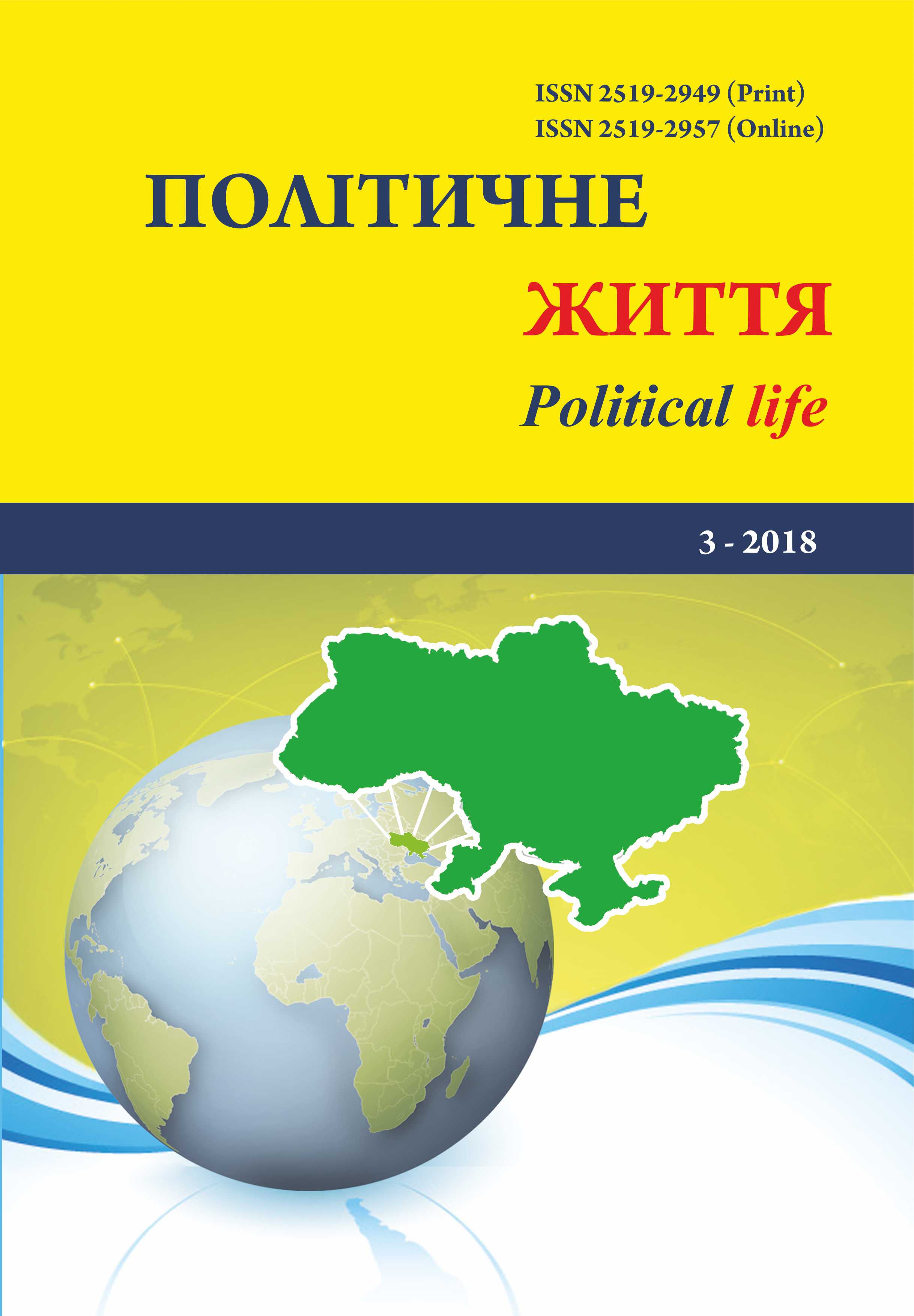Dynamics of generalized trust and volunteering in Ukraine after Revolution of Dignity.
DOI:
https://doi.org/10.31558/2519-2949.2018.3.16Keywords:
Revolution of Dignity, trust, moral, generalized trust, valuesAbstract
The article deals with the problem of dissemination of generalized trust Ukrainians as the basis of its solidarity and formation of social capital, the introduction of effective communication between citizens and authorities, subjects of power, and various strata of society. The analysis uses the results of monitoring by the Institute of Sociology of the National Academy of Sciences of Ukraine for 2014-2017. On the basis of them, it is proved that the most recent volunteer movement that began to gain strength since the days of Euromaidan, the Revolution of Dignity and the beginning of hostilities in the east of our country, has become a factor in the formation a climate of trust. As result, confidence has shown itself to be a moral value and trust could be the positive attitude toward personally unfamiliar people since they share with us fundamental moral orders and do not seek to deceive us.
At the same time, the volunteers realized that trust connects with risk. Accordingly, the question for them was how to learn to deliberately go to it in those situations where it is necessary. By overcoming both their own and social concerns, the volunteer movement has demonstrated universal, civic, interpersonal and personal moral qualities. The motive of the overwhelming majority of its representatives was not a material benefit, but a moral obligation that gave rise to respect and trust in them. The activity of volunteers served as an example for others, which prompted people to join the volunteer movement, influenced the formation of civic consciousness. It has also contributed to a marked growth in Ukraine in recent years of interpersonal trust, which in 2016 amounted to 56.2%.
An analysis of the social portrait of those who find it possible to trust in others in today's Ukrainian society shows that the experience of volunteering 2014-2017 increases the chances of increasing trust in the state. It also argues that preserving the ability to go to a conscious risk, overcoming the fear of losing something through possible fraud, is a prerequisite for the further development of the movement and the spread of confidence-based practices in Ukraine.
References
Sztopmka P. Trust: A Sociological Theory / P. Sztopmka. – Cambridge: Cambridge University Press, 1999. – 226 p.
Putnam R. D. Bowling Alone: The Collapse and Revival of American Community / R. D. Putnam. – N.Y. : Simon and Shuster, 2000. – 345 p.
Тітаренко О. М. Форми існування соціального капіталу: дослідження науковців / О. М. Тітаренко // Вісник Хмельницького національного університету. Серія: Економічні науки. – 2015. – № 2. – Т. 2. – С. 201-205.
Див.: Білич І. О. Мімікрія волонтерського руху в Україні / І. О. Білич // Вісник Одеського національного університету ім. І. І. Мечникова. Серія: Соціологія і політичні науки. – 2013 – Т.18. – Вип. 2 – Част. 2. – С. 156-163.
Нікітіна Т. Надія та віра без відповідальності, або Соціологічна діагностика українського суспільства / Т. Нікітіна. [Електронний ресурс]. – Режим доступу: https://dt.ua/SOCIUM/ nadiya-ta-vira-bez-vidpovidalnostiabo-sociologichna-diagnostika-ukrayinskogo-suspilstva-286321 _.html
Кокорський В. Ф., Кокорська О. І. Генералізована довіра як моральна цінність в системі вартостей українського суспільства / В. Ф. Кокорський, О. І. Кокорська // Політичне життя. – 2016. – № 1-2. – С. 97-101; Кокорський В. Ф., Кокорська О. І. Генералізована довіра як моральна цінність в працях західних науковців / В. Ф. Кокорський, О. І. Кокорська // Травневі студії: історія, політологія, міжнародні відносин. Всеукраїнська наукова інтернет-конференція, присвячена 25-річчю незалежності України, 20 травня 2016 р. – Вінниця: Друк, 2016. – С. 78-80.
Олейнік А. Українці можуть об'єднатися для допомоги Армії. Але щоб створити ОСББ – довіри не вистачає / А. Олейнік. [Електроний ресурс]. – Режим доступу: http://texty.org.ua/pg/article/editorial/read/ 73376/Ukrajinci_mozhut_ objednatysa_dla_dopomogy_Armiji_Ale
Жужа Л. Моральні аспекти волонтерського руху на підтримку АТО / Л. Жужа // European political and law discourse. – 2015. – Vol. 2. – Issue 2. – Р. 210-215.
Мартинюк І., Соболєва Н. Формування довіри як передумова інтеграції суспільства: довірчі відносини в сучасному українському соціумі / І. Мартинюк, Н. Соболєва // Українське суспільство: моніторинг соціальних змін / За ред. д.ек.н. В. Ворони, д.соц.н. М. Шульги. – К.: Інститут соціології НАН України, 2016. – С. 150-166.
Степаненко В. Громадянське суспільство: соціально-структурні аспекти / В. Степаненко // Українське суспільство: моніторинг соціальних змін / За ред. д.ек.н. В. Ворони, д.соц.н. М. Шульги. – К.: Інститут соціології НАН України, 2016. – С. 78-86.
Мандебура О. Волонтерський рух в Україні як нова форма взаємодії влади і громадянського суспільства / О. Мандебура. [Електроний ресурс]. – Режим доступу: http://www.ipiend.gov.ua/?mid=12&action=article_ detail&article_id=8
Черниш Н. Вплив довіри та довірчих відносин на становлення новітнього соціального інституту волонтерства у сучасній Україні / Н. Черниш // Соціологія: теорія, методи, маркетинг. – 2016. – №2. – С.26-38.

